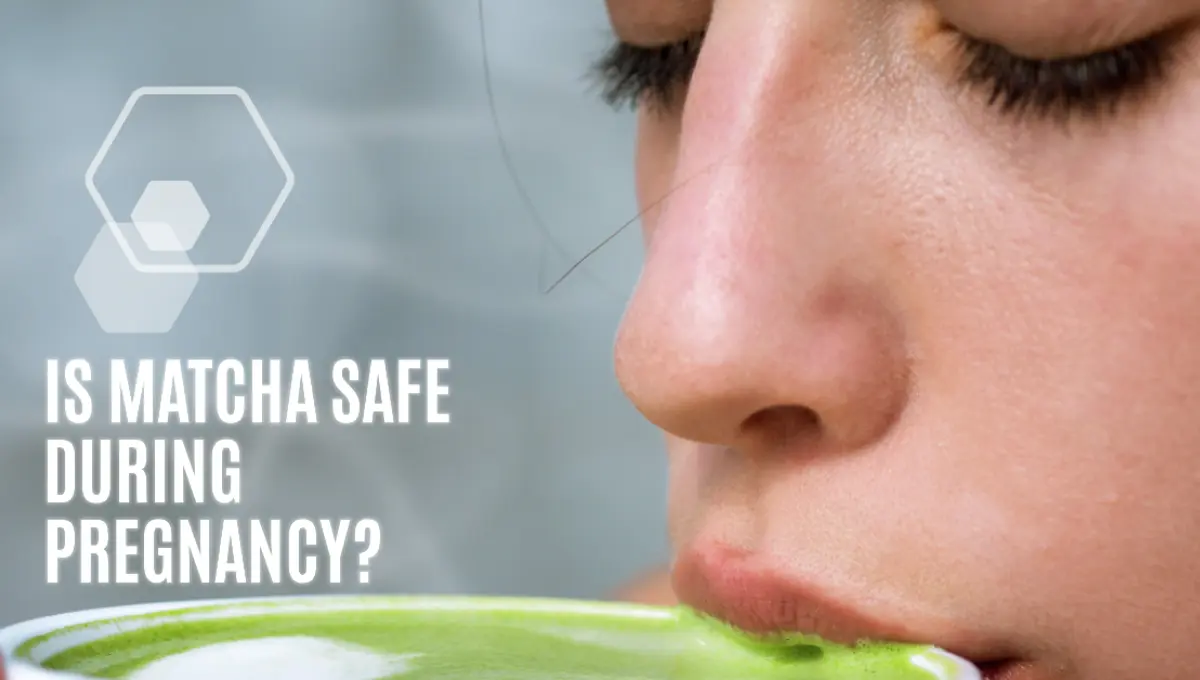
Pregnancy is a time when women need to be extra careful about what they eat and drink. With so many conflicting opinions out there, it can be hard to know what’s safe and what’s not. One drink that has been gaining popularity in recent years is matcha tea. But is matcha safe during pregnancy? This is a question that many expectant mothers are asking.
In this blog post on PregnancyBoss, we will explore the research and provide you with the information you need to make an informed decision about whether or not to drink matcha tea during pregnancy.
Related: What are 5 Pregnancy Safe Tea?
What is Matcha Tea?
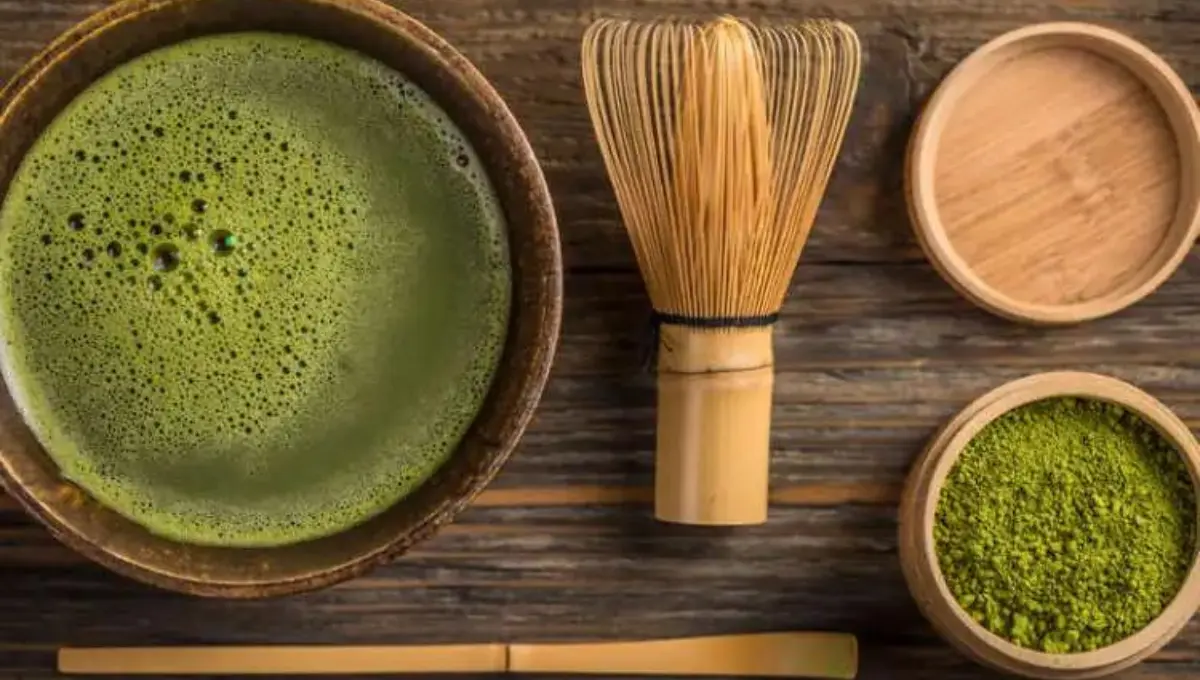
Matcha is a type of green tea that is made by grinding young tea leaves into a bright green powder. The powder is then whisked with hot water to create a frothy drink. Unlike regular green tea, where the leaves are infused in water and then removed, matcha is made by drinking the whole tea leaves.
Matcha is traditionally consumed in East Asia and is the staple ingredient upon which traditional Japanese tea ceremonies were built in the 12th century.
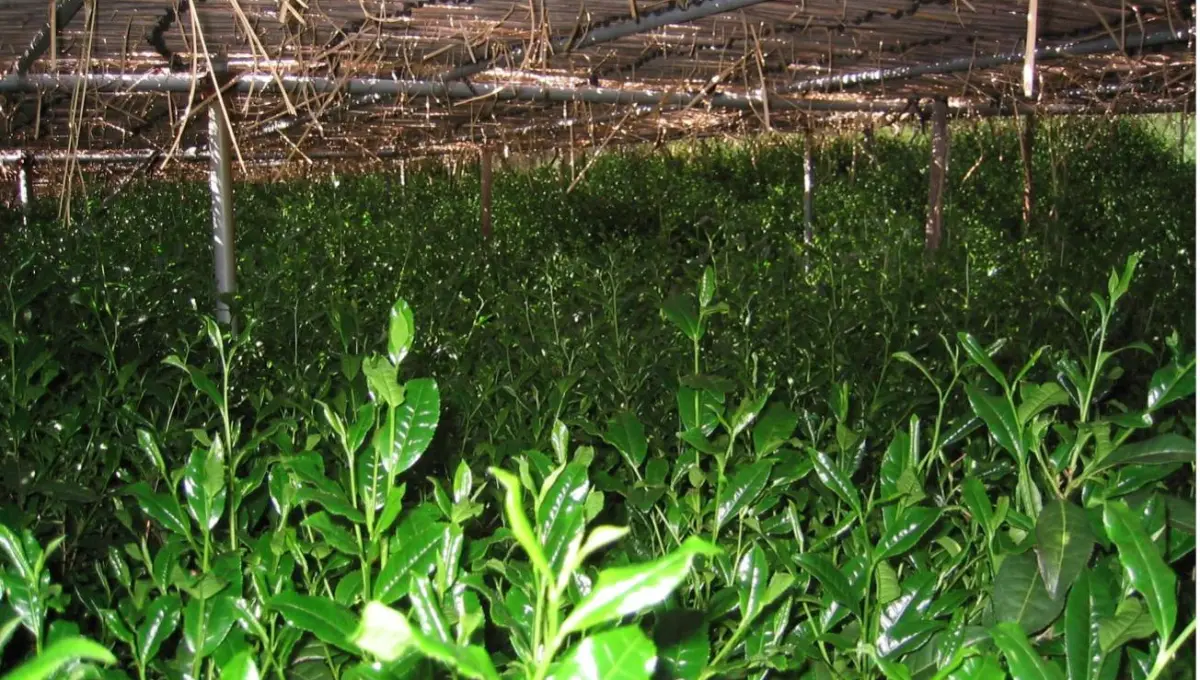
The green tea plants used for matcha are shade-grown for three to four weeks before harvest, which produces more theanine and caffeine. Matcha is high in a catechin called EGCG (epigallocatechin gallate), which is believed to have cancer-fighting effects.
Matcha is also used to flavor and dye foods, such as mochi and soba noodles, green tea ice cream, matcha lattes, and a variety of Japanese wagashi confectionery.
There are two forms of matcha: usucha and koicha. Usucha is the most common preparation and is usually made in cafes and restaurants. Koicha is made with half the amount of water and twice the amount of matcha powder as usucha and has a very thick texture. Ceremonial grade matcha is considered the highest quality matcha and is intended to be enjoyed with no additives or sweeteners. Culinary grade matcha is used for cooking and baking.
Related: Can You Drink Lipton Tea During Pregnancy?
Is Matcha Safe During Pregnancy?
Matcha tea is generally considered safe for pregnant women to consume, but it’s important to consume it in moderation due to its caffeine content. Here are some benefits and risks of drinking matcha tea during pregnancy:Benefits:
Benefits
- Matcha tea is rich in antioxidants and nutrients that benefit pregnant women and their babies.
- The anti-inflammatory properties of the antioxidants in matcha tea are beneficial.
- Matcha tea is a natural blood thinner, which can help to relax the arterial walls and lower blood pressure.
Risks
- Matcha tea contains caffeine, which can cross the placenta and affect the baby’s heart rate and breathing. The recommended maximum daily intake of caffeine during pregnancy is 200 mg, and one cup of matcha tea contains about 35 mg of caffeine.
- Drinking too much matcha tea can block the absorption of folate and iron, which are important nutrients for a healthy pregnancy.
- If matcha tea is not sourced from a reputable company, it could be contaminated with bacteria, fungi, and heavy metals, which could pose a risk to expecting mothers
Related: How To Make Red Raspberry Leaf Tea?
How much Matcha Tea can a Pregnant Woman drink?
Pregnant women can safely consume matcha tea in moderation. The recommended maximum daily intake of caffeine during pregnancy is 200 mg, and one cup of matcha tea contains about 35 mg of caffeine. Therefore, it is recommended to limit matcha tea intake to two cups a day, maximum. Drinking too much matcha tea can block the absorption of folate and iron, which are important nutrients for a healthy pregnancy.
Related: Is Rooibos Tea Safe During Pregnancy?
Can you drink Matcha while Breastfeeding?
It is generally safe to drink matcha tea while breastfeeding, as long as you consume it in moderation and adhere to caffeine consumption guidelines. Here are some key points to consider:
- Caffeine Content: Matcha tea contains caffeine, but the amount is lower compared to coffee. One cup of matcha tea typically contains about 35 mg of caffeine. It is recommended for breastfeeding mothers to limit their caffeine intake to 300 mg per day.
- Antioxidant Benefits: Matcha tea is rich in antioxidants, which can help reduce redness and swelling in the body. The high quantities of antioxidants found in matcha tea can be beneficial for breastfeeding mothers.
- Quality and Moderation: It is important to pay attention to the quality of the matcha tea and consume it in moderation. Choose reputable sources and start with a smaller amount to see how your body reacts. Listen to your body and adjust your consumption accordingly.
- Nutritional Variety: While matcha tea can be a valuable addition to your diet, it is not a substitute for a balanced and varied diet. It is important to eat a wide variety of foods to obtain all the necessary nutrients.
- Individual Sensitivity: Some individuals may be more sensitive to the effects of caffeine than others. It’s important to be aware of your own body’s response and adjust your consumption accordingly.
Related: How Do I Prepare for Breastfeeding?
What are some recommended Matcha Brands for Pregnant Women?

Here are some recommended matcha brands for pregnant women:
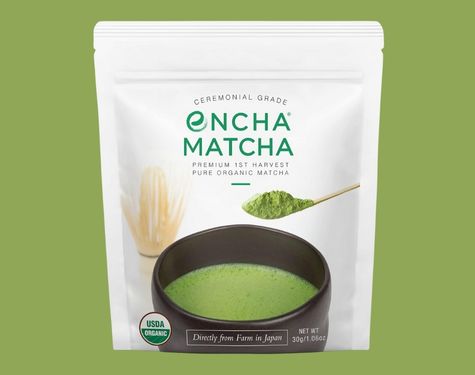
- Encha: Encha offers a variety of high-quality organic matcha powders that are perfect for pregnant women. They harvest their matcha directly from trusted sources.
- Kyoto Dew Matcha: Kyoto Dew Matcha is known for its ceremonial grade matcha powder, which is highly regarded for its quality. It is a popular choice among matcha enthusiasts.
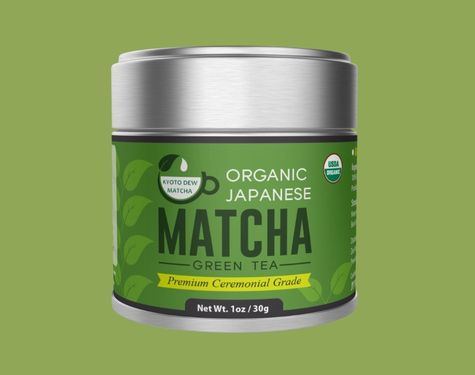
When choosing a matcha brand, it is important to look for the following qualities:
- High quality: Look for matcha powders that are bright green and have a fine texture. Avoid powders that are harsh or bitter.
- Organic certification: Choosing an organic matcha powder ensures that the tea leaves used to make the powder are not treated with pesticides or other chemicals
What are some common ways to drink Matcha Tea?
Matcha tea can be consumed in various ways. Here are some common ways to drink matcha tea:
- Traditional Matcha Tea: This is the most common way to drink matcha tea. To make traditional matcha tea, you need ceremonial grade matcha powder and hot water. Mix ½ to ¾ tsp ceremonial grade matcha powder and 1 ounce of hot water (about 180°F) in a matcha bowl or mug. Using your bamboo whisk, whisk the matcha and water together until it becomes frothy.
- Matcha Latte: A matcha latte is a popular way to enjoy matcha tea. To make a matcha latte, whisk 1 tsp of matcha powder with 2 oz of hot water until it becomes frothy. Then, add 6 oz of steamed milk and sweetener to taste.
- Matcha Smoothie: Matcha powder can be added to smoothies for an extra boost of antioxidants and nutrients. Blend 1 tsp of matcha powder with your favorite fruits, vegetables, and milk or yogurt for a healthy and delicious smoothie.
- Matcha Lemonade: Matcha powder can be added to lemonade for a refreshing and healthy drink. Mix 1 tsp of matcha powder with 1 cup of lemonade and ice.
- Matcha Iced Tea: Matcha powder can be used to make iced tea. Mix 1 tsp of matcha powder with 2 oz of hot water until it becomes frothy. Then, add 6 oz of cold water and ice.
Conclusion
So, the burning question – is matcha safe during pregnancy? Yes, moderate consumption of matcha during pregnancy is likely safe for most expectant mothers. Its antioxidants and nutrients can offer health benefits, but it’s crucial to be mindful of caffeine intake. As with any dietary changes during pregnancy, it is advisable to consult with a healthcare provider before incorporating matcha into your diet. Remember that every pregnancy is unique, and individual responses to food and beverages can vary, so always prioritize the well-being of both the mother and the baby.
Frequently Asked Questions (FAQs)
u003cstrongu003eCan I drink matcha every day during pregnancy?u003c/strongu003e
While having an occasional cup of matcha is generally considered safe, it’s best to moderate your intake to one or two cups per day to keep caffeine levels in check.
u003cstrongu003eAre there any decaffeinated matcha options available?u003c/strongu003e
Yes, there are decaffeinated matcha varieties available that can be a safer option for pregnant women. However, ensure that they are free from harmful chemicals used in the decaffeination process.
u003cstrongu003eCan matcha help with morning sickness?u003c/strongu003e
While matcha’s calming properties might provide relief from morning sickness for some women, it’s essential to consult with a healthcare provider for suitable remedies.
u003cstrongu003eIs it safe to consume matcha sweets or desserts during pregnancy?u003c/strongu003e
Consuming matcha in moderation as part of desserts is generally safe, as long as the overall sugar intake is controlled and it doesn’t replace essential nutrients from regular meals.












